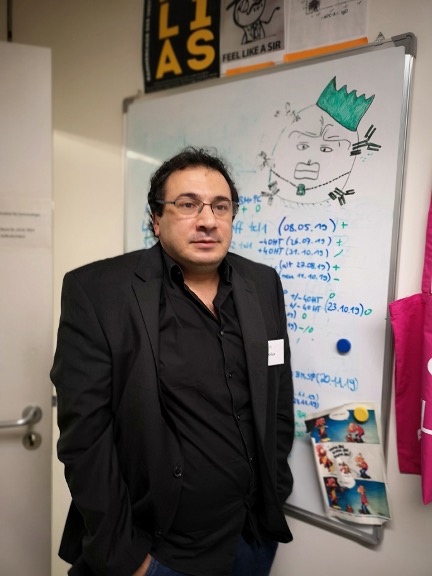Dr. Elias Hobeika
Dr. Hobeika and his group are interested in survival of mature B cells after deletion of components of B cell antigen receptor (BCR) and its signaling machinery. For this purpose we are using Tamoxifen-inducible B cell specific Cre strains to delete different “floxed” alleles (immunoglobulin heavy chain, Iga, Igb, Syk) in B cells. Furthermore, we would like to translate our knowledge to murine and human B cells from established mouse models for malignant B cell development and from human patients with lymphatic disorders mainly chronic lymphocytic leukemia (CLL) respectively.
CLL is a frequent lymphoproliferative disorder of B cells. Although inhibitors targeting signal proteins involved in B cellantigen receptor (BCR) signaling constitute an important part of the current therapeutic protocols for CLL patients, the exact role of BCR signaling, ascompared to genetic aberration, in the development and progression of CLL is still controversial. We are currently investigating whether BCR expression per se is pivotal for thedevelopment and maintenance of CLL B cells, which we used in the TCL1 mouse model.
Furthermore, we are testing, whether mutations augmenting B cell signaling influencethe course of CLL development and its severity. The Phosphatidylinositol-3-kinase(PI3K) signaling pathway is an integral part of the BCR signaling machinery and its activity is indispensable for B cell survival. It is negatively regulated by the lipidphosphatase PTEN, whose loss mimics PI3K pathway activation. Our studies focus on the pivotal role for BCR signaling in CLL development and deepen our understanding of the molecular mechanismsunderlying the genesis of CLL and for the development of new treatment strategies.
==> for details

